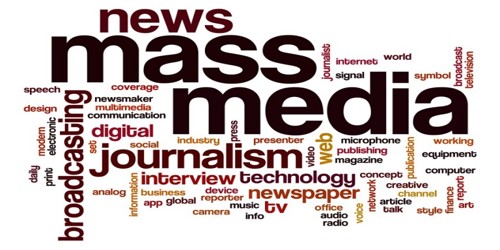Business with Mass Communication media
In the philosophy of democracy, a free society depends on open communication. This means that in the free world a large proportion of mass communication media, such as books, newspapers, motion pictures, radio and television, are operated by independent business organizations. Mass communication is an indispensable part of business. Business activities would be restricted without mass media.
(a) Freedom with responsibility: Freedom of the press and mass communications is not an end in itself but is a means to an end of a free society. Obviously mass communication is not set up is simply for the profit of business.
(b) Who controls mass communication: Business’s role in mass communication can be better understood by examining the centers of control of mass communication. At first glance, the answer may appear obvious. It can be said that, since business owns and controls the economic asset of communication such as printing presses and broadcasting studios. It must certainly control mass communication. The consumer also controls mass communication. He decides which books and magazines to purchase.
(c) The crisis in news coverage- A normal model of pluralism assumes that social equilibrium by balanced influences of many interest groups.
(d) A rise of countervailing power: The widespread news credibility gap caused a gradual buildup of countervailing power, as might be expected in pluralism. Countervailing pressures developed toward both journalists and as the employer of journalists.
(e) The fairness doctrine in federal regulation of broadcasting: The issue of fair news coverage is related to the fairness doctrine of the federal communications commission in its regulation of the radio and television industry. This doctrine applies across the board to all broadcasts, rather than to news alone.
(f) Motion picture self-regulation by means of a rating system: Another area of business difficulty in mass communication is motion pictures which have undesirable qualities for some of the population, particularly young persons. Recognizing its responsibility, the motion picture industry moved toward self-regulation.
(g) Communication trends: A critical issue is whether business will be able to absorb this new revolution effectively, or whether it will default to government or some other organization.
















